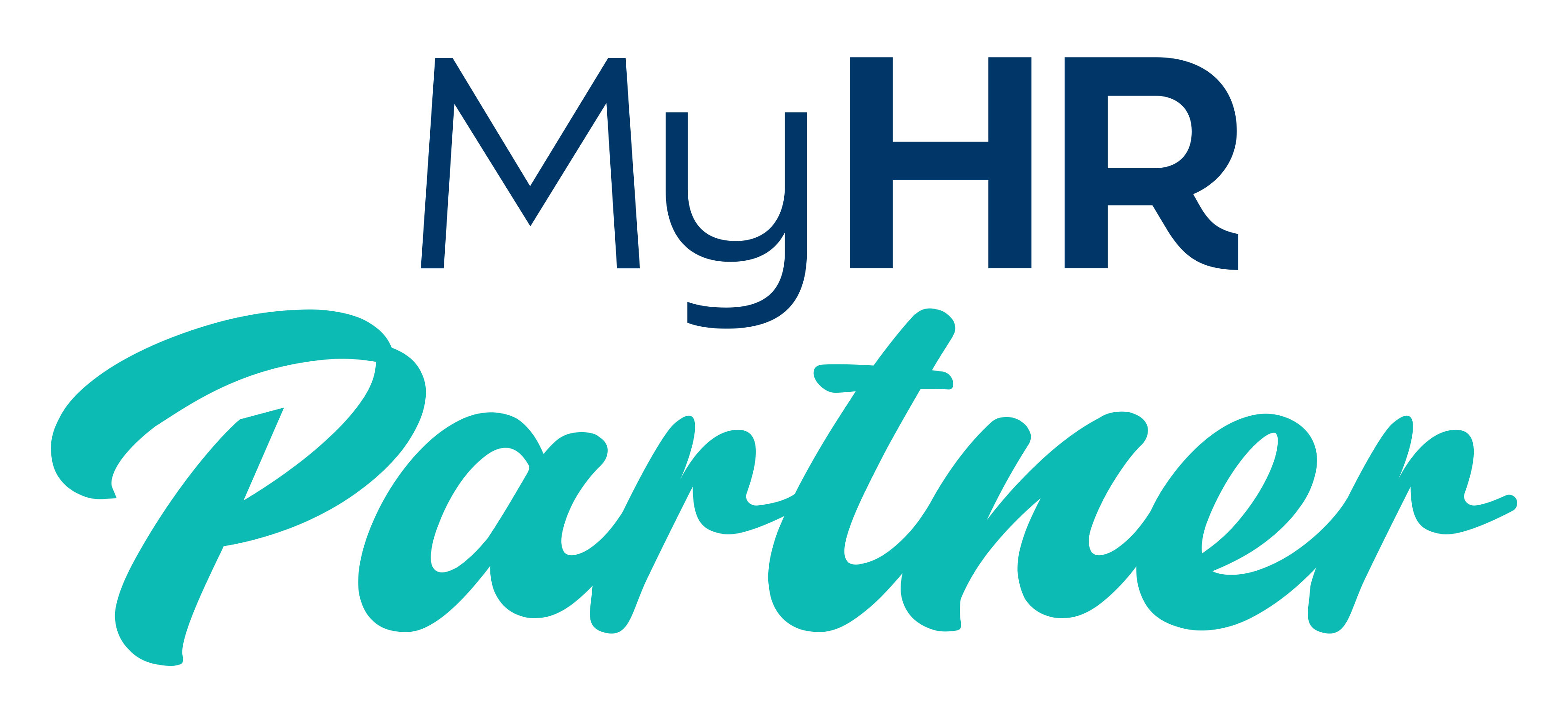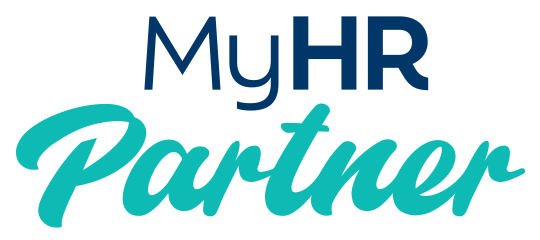Unlocking the Power of Human Resources: Welcome to Our Blog!
Discover HR updates, the latest trends, best practices, and innovative strategies shaping the world of Human Resources in Australia. From talent acquisition to employee engagement, we delve into the intricacies of HR management to empower organisations.
Let's navigate the dynamic landscape of HR together.

Podcast Episode 19: Navigating Employee Termination: Ethical and Practical Insights
Hi, I’m Karen Hillen, and welcome to the My HR Partner Blog. In this post, we’re diving into a challenging yet crucial topic: employee termination. Whether you’re a small business owner or an HR professional, understanding the ethical and practical considerations involved in terminating an employee is essential. Let’s explore how to handle this process with care and compliance.
The Reality of Employee Termination
Terminating an employee is never easy. It’s often one of the most difficult aspects of managing a business. The reasons for termination can vary widely, including redundancy, performance issues, or other factors. Regardless of the reason, it’s so important to approach this process ethically and with a clear understanding of your obligations.
Understanding Redundancy
Redundancy occurs when a position is no longer required within the business. This can happen for various reasons, such as financial difficulties or restructuring. When considering redundancy, it’s important to:
Follow Fair Work Guidelines: Make sure that you adhere to the consultation process required by Fair Work. This includes informing the employee of the redundancy, discussing possible alternatives, and providing the required notice period.
Genuine Redundancy: Be cautious not to misuse redundancy as a means to “get rid of” an employee. It’s crucial to be able to prove that the redundancy is genuine if an employee submits an unfair dismissal claim.
Respect and Communication: Showing respect and offering support can make a significant difference. Engage in open dialogue and provide assistance where possible.
Termination During Probation
Probation periods are designed to assess whether a new employee is the right fit for the role and the business. During this time, you can terminate employment within the probation period if things aren’t working out. Here’s what you need to know:
Minimum Employment Period: For small businesses with fewer than 15 employees, the minimum employment period is 12 months. During this time, employees cannot claim unfair dismissal. However, it’s still crucial to follow a fair and transparent process.
Reasons for Termination: Common reasons include misalignment with job requirements or company culture. Ensure you provide clear feedback and document all performance issues and decisions.
Handling Performance Issues
When addressing performance issues, a structured approach is vital. This could involve:
Performance Improvement Plan (PIP): Implementing a PIP to provide the employee with clear goals and support to improve their performance is a good way to monitor work performance. Document progress and provide feedback regularly.
Warnings: While there’s no set number of warnings required, ensure that you follow a fair process. Provide a clear record of any warnings issued and the steps taken to address the performance issues.
Serious Misconduct: For severe issues such as misconduct, it might be appropriate to move straight to a final warning or even immediate termination, depending on the severity. Always seek advice to ensure you’re following legal and ethical procedures. This most likely could include getting advice from an employment lawyer.
Dealing with Unfair Dismissal Claims
If an employee believes they have been unfairly dismissed, they may submit a claim with Fair Work. Here’s how to navigate this situation:
Response Time: Employees have 21 days from the date of the termination of their employment to lodge an unfair dismissal claim. Fair Work will provide instructions on how to respond and what steps to take.
Settlement or Legal Advice: Often, claims can be settled during conciliation meetings. For complex cases, consulting with an employment lawyer can be beneficial to ensure proper handling and minimise potential costs.
Documentation and Process: Maintain thorough records of all processes, communications, and decisions related to the termination. This documentation will be invaluable if a claim arises. It’s important to have a fair process to follow.
How My HR Partner Can Assist
Navigating employee termination requires a sound understanding of processes and compliance. At My HR Partner, we provide guidance to ensure you have robust policies and procedures in place. Whether you need advice on specific cases or help setting up effective HR policies & practices, we’re here to support you.
Stay tuned for our next post about our next podcast, where we’ll discuss the benefits small businesses can offer to attract and retain top talent. Until next time, remember that effective HR practices are key to a thriving and compliant business.
Thanks for reading, and have a great day!
Listen to the podcast here: https://myhrp.com.au/podcast-episode-19

Karen Hillen
Tapping into more than 30 years’ experience in Human Resources, staffing & payroll, Karen loves helping you get the best out of your people while providing you, the business owner, with peace of mind.
Our Latest Blog Post

Podcast Episode 19: Navigating Employee Termination: Ethical and Practical Insights
Hi, I’m Karen Hillen, and welcome to the My HR Partner Blog. In this post, we’re diving into a challenging yet crucial topic: employee termination. Whether you’re a small business owner or an HR professional, understanding the ethical and practical considerations involved in terminating an employee is essential. Let’s explore how to handle this process with care and compliance.
The Reality of Employee Termination
Terminating an employee is never easy. It’s often one of the most difficult aspects of managing a business. The reasons for termination can vary widely, including redundancy, performance issues, or other factors. Regardless of the reason, it’s so important to approach this process ethically and with a clear understanding of your obligations.
Understanding Redundancy
Redundancy occurs when a position is no longer required within the business. This can happen for various reasons, such as financial difficulties or restructuring. When considering redundancy, it’s important to:
Follow Fair Work Guidelines: Make sure that you adhere to the consultation process required by Fair Work. This includes informing the employee of the redundancy, discussing possible alternatives, and providing the required notice period.
Genuine Redundancy: Be cautious not to misuse redundancy as a means to “get rid of” an employee. It’s crucial to be able to prove that the redundancy is genuine if an employee submits an unfair dismissal claim.
Respect and Communication: Showing respect and offering support can make a significant difference. Engage in open dialogue and provide assistance where possible.
Termination During Probation
Probation periods are designed to assess whether a new employee is the right fit for the role and the business. During this time, you can terminate employment within the probation period if things aren’t working out. Here’s what you need to know:
Minimum Employment Period: For small businesses with fewer than 15 employees, the minimum employment period is 12 months. During this time, employees cannot claim unfair dismissal. However, it’s still crucial to follow a fair and transparent process.
Reasons for Termination: Common reasons include misalignment with job requirements or company culture. Ensure you provide clear feedback and document all performance issues and decisions.
Handling Performance Issues
When addressing performance issues, a structured approach is vital. This could involve:
Performance Improvement Plan (PIP): Implementing a PIP to provide the employee with clear goals and support to improve their performance is a good way to monitor work performance. Document progress and provide feedback regularly.
Warnings: While there’s no set number of warnings required, ensure that you follow a fair process. Provide a clear record of any warnings issued and the steps taken to address the performance issues.
Serious Misconduct: For severe issues such as misconduct, it might be appropriate to move straight to a final warning or even immediate termination, depending on the severity. Always seek advice to ensure you’re following legal and ethical procedures. This most likely could include getting advice from an employment lawyer.
Dealing with Unfair Dismissal Claims
If an employee believes they have been unfairly dismissed, they may submit a claim with Fair Work. Here’s how to navigate this situation:
Response Time: Employees have 21 days from the date of the termination of their employment to lodge an unfair dismissal claim. Fair Work will provide instructions on how to respond and what steps to take.
Settlement or Legal Advice: Often, claims can be settled during conciliation meetings. For complex cases, consulting with an employment lawyer can be beneficial to ensure proper handling and minimise potential costs.
Documentation and Process: Maintain thorough records of all processes, communications, and decisions related to the termination. This documentation will be invaluable if a claim arises. It’s important to have a fair process to follow.
How My HR Partner Can Assist
Navigating employee termination requires a sound understanding of processes and compliance. At My HR Partner, we provide guidance to ensure you have robust policies and procedures in place. Whether you need advice on specific cases or help setting up effective HR policies & practices, we’re here to support you.
Stay tuned for our next post about our next podcast, where we’ll discuss the benefits small businesses can offer to attract and retain top talent. Until next time, remember that effective HR practices are key to a thriving and compliant business.
Thanks for reading, and have a great day!
Listen to the podcast here: https://myhrp.com.au/podcast-episode-19

Karen Hillen
Tapping into more than 30 years’ experience in Human Resources, staffing & payroll, Karen loves helping you get the best out of your people while providing you, the business owner, with peace of mind.
We provide HR advice and support. We have trusted partners to assist with any employment law issues
outside of our scope.
More info
Our Latest Blog Post

Podcast Episode 19: Navigating Employee Termination: Ethical and Practical Insights
Hi, I’m Karen Hillen, and welcome to the My HR Partner Blog. In this post, we’re diving into a challenging yet crucial topic: employee termination. Whether you’re a small business owner or an HR professional, understanding the ethical and practical considerations involved in terminating an employee is essential. Let’s explore how to handle this process with care and compliance.
The Reality of Employee Termination
Terminating an employee is never easy. It’s often one of the most difficult aspects of managing a business. The reasons for termination can vary widely, including redundancy, performance issues, or other factors. Regardless of the reason, it’s so important to approach this process ethically and with a clear understanding of your obligations.
Understanding Redundancy
Redundancy occurs when a position is no longer required within the business. This can happen for various reasons, such as financial difficulties or restructuring. When considering redundancy, it’s important to:
Follow Fair Work Guidelines: Make sure that you adhere to the consultation process required by Fair Work. This includes informing the employee of the redundancy, discussing possible alternatives, and providing the required notice period.
Genuine Redundancy: Be cautious not to misuse redundancy as a means to “get rid of” an employee. It’s crucial to be able to prove that the redundancy is genuine if an employee submits an unfair dismissal claim.
Respect and Communication: Showing respect and offering support can make a significant difference. Engage in open dialogue and provide assistance where possible.
Termination During Probation
Probation periods are designed to assess whether a new employee is the right fit for the role and the business. During this time, you can terminate employment within the probation period if things aren’t working out. Here’s what you need to know:
Minimum Employment Period: For small businesses with fewer than 15 employees, the minimum employment period is 12 months. During this time, employees cannot claim unfair dismissal. However, it’s still crucial to follow a fair and transparent process.
Reasons for Termination: Common reasons include misalignment with job requirements or company culture. Ensure you provide clear feedback and document all performance issues and decisions.
Handling Performance Issues
When addressing performance issues, a structured approach is vital. This could involve:
Performance Improvement Plan (PIP): Implementing a PIP to provide the employee with clear goals and support to improve their performance is a good way to monitor work performance. Document progress and provide feedback regularly.
Warnings: While there’s no set number of warnings required, ensure that you follow a fair process. Provide a clear record of any warnings issued and the steps taken to address the performance issues.
Serious Misconduct: For severe issues such as misconduct, it might be appropriate to move straight to a final warning or even immediate termination, depending on the severity. Always seek advice to ensure you’re following legal and ethical procedures. This most likely could include getting advice from an employment lawyer.
Dealing with Unfair Dismissal Claims
If an employee believes they have been unfairly dismissed, they may submit a claim with Fair Work. Here’s how to navigate this situation:
Response Time: Employees have 21 days from the date of the termination of their employment to lodge an unfair dismissal claim. Fair Work will provide instructions on how to respond and what steps to take.
Settlement or Legal Advice: Often, claims can be settled during conciliation meetings. For complex cases, consulting with an employment lawyer can be beneficial to ensure proper handling and minimise potential costs.
Documentation and Process: Maintain thorough records of all processes, communications, and decisions related to the termination. This documentation will be invaluable if a claim arises. It’s important to have a fair process to follow.
How My HR Partner Can Assist
Navigating employee termination requires a sound understanding of processes and compliance. At My HR Partner, we provide guidance to ensure you have robust policies and procedures in place. Whether you need advice on specific cases or help setting up effective HR policies & practices, we’re here to support you.
Stay tuned for our next post about our next podcast, where we’ll discuss the benefits small businesses can offer to attract and retain top talent. Until next time, remember that effective HR practices are key to a thriving and compliant business.
Thanks for reading, and have a great day!
Listen to the podcast here: https://myhrp.com.au/podcast-episode-19

Karen Hillen
Tapping into more than 30 years’ experience in Human Resources, staffing & payroll, Karen loves helping you get the best out of your people while providing you, the business owner, with peace of mind.
We provide HR advice and support.
We have trusted partners to assist with
any employment law issues outside
of our scope.
More info
PO Box 1079
Coolangatta QLD 4225
ABN 30 644 527 015







